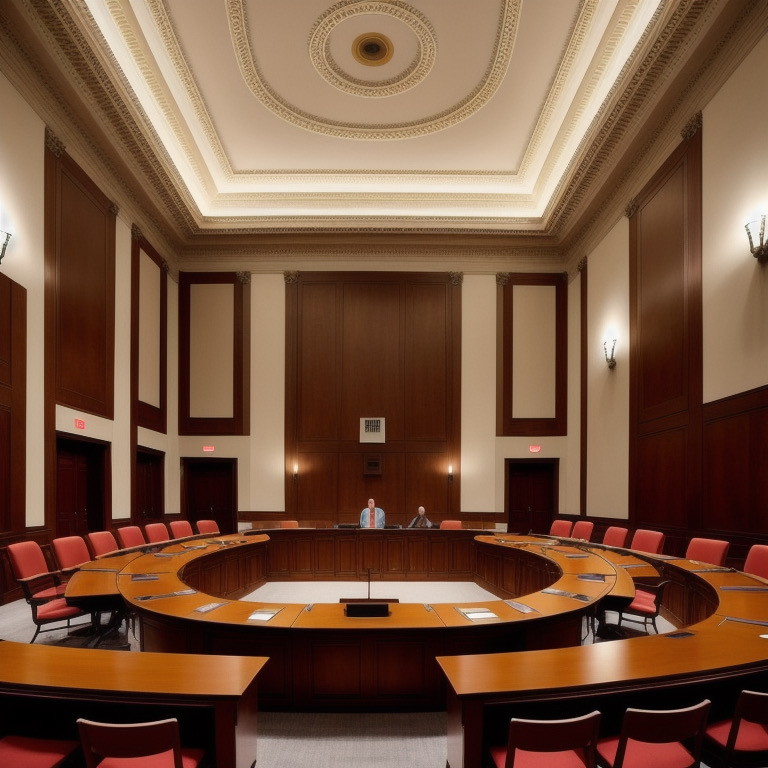Contemp Enforcement
The Case for Holding Cabinet Officials in Contempt of Court When They Evade Congressional Testimony
In a democracy founded on transparency, accountability, and the rule of law, cabinet officials play a pivotal role. Appointed by the President and often confirmed by the Senate, these officials nomanage key areas of public policy and administration. When summoned to testify before Congress, they are expected to provide truthful and comprehensive answers to lawmakers’ inquiries. However, when cabinet officials evade or refuse to answer questions, it undermines the democratic process and hampers effective government oversight. Holding these officials in contempt of court for non-compliance is essential to maintain governance integrity and ensure accountability.
Upholding the Rule of Law
The rule of law dictates that all individuals and institutions, including government officials, must be accountable under the law. When cabinet officials evade questions or refuse to testify before Congress, they essentially place themselves above the law, which undermines this fundamental democratic principle. Holding officials in contempt reasserts that accountability is paramount and non-negotiable.
Ensuring Effective Oversight
Congress has a constitutional mandate to oversee the executive branch, which is crucial for checking executive power, preventing abuse, and ensuring effective and lawful policy implementation. When cabinet officials refuse to answer questions, it hampers Congress’s ability to fulfill this role. Contempt proceedings deter non-compliance, ensuring robust and effective oversight, thereby enhancing transparency and accountability within the executive branch.
Promoting Transparency
Government transparency is critical for maintaining public trust. Citizens have the right to know how decisions are made and how their tax dollars are spent. When cabinet officials evade congressional inquiries, it obscures decision-making processes and fosters public suspicion and distrust. Holding officials in contempt for non-compliance signals a commitment to transparency and the public’s right to information, demonstrating that evasion is unacceptable and officials must be forthcoming and honest.
Deterrence of Future Non-Compliance
Setting a precedent of holding cabinet officials in contempt for refusing to answer questions serves as a deterrent to future non-compliance. It sends a clear message that obstructing oversight will have serious consequences. This deterrence is crucial for maintaining the integrity of the oversight process, encouraging current and future officials to comply with congressional inquiries willingly. Without such measures, the likelihood of officials evading accountability increases, weakening democratic institutions.
Strengthening Democratic Institutions
Democratic institutions rely on a balance of power and a system of checks and balances. When cabinet officials ignore congressional inquiries, they disrupt this balance, weakening Congress and, by extension, democracy itself. Holding officials in contempt reinforces Congress’s authority and the importance of checks and balances. It ensures that the executive branch remains accountable to the legislative branch, preserving the health and functionality of democratic governance.
Legal and Ethical Obligations
Cabinet officials have both legal and ethical obligations to provide truthful and complete information to Congress. Ethically, they are stewards of public trust and must act with integrity. Legally, they are bound by statutes requiring cooperation with congressional investigations. When officials fail to meet these obligations, it is not just a breach of protocol but a violation of their duty to the public and the Constitution. Contempt proceedings are a necessary enforcement mechanism to ensure these obligations are met.
Conclusion
Holding cabinet officials in contempt of court when they evade answering questions during congressional testimony is crucial for maintaining the rule of law, ensuring effective oversight, promoting transparency, deterring future non-compliance, strengthening democratic institutions, and upholding legal and ethical obligations. This practice reinforces the foundational principles of accountability and transparency in governance, essential for a functioning democracy. By ensuring no official is above the law, it helps maintain public trust and the integrity of democratic processes.



Comments
Post a Comment